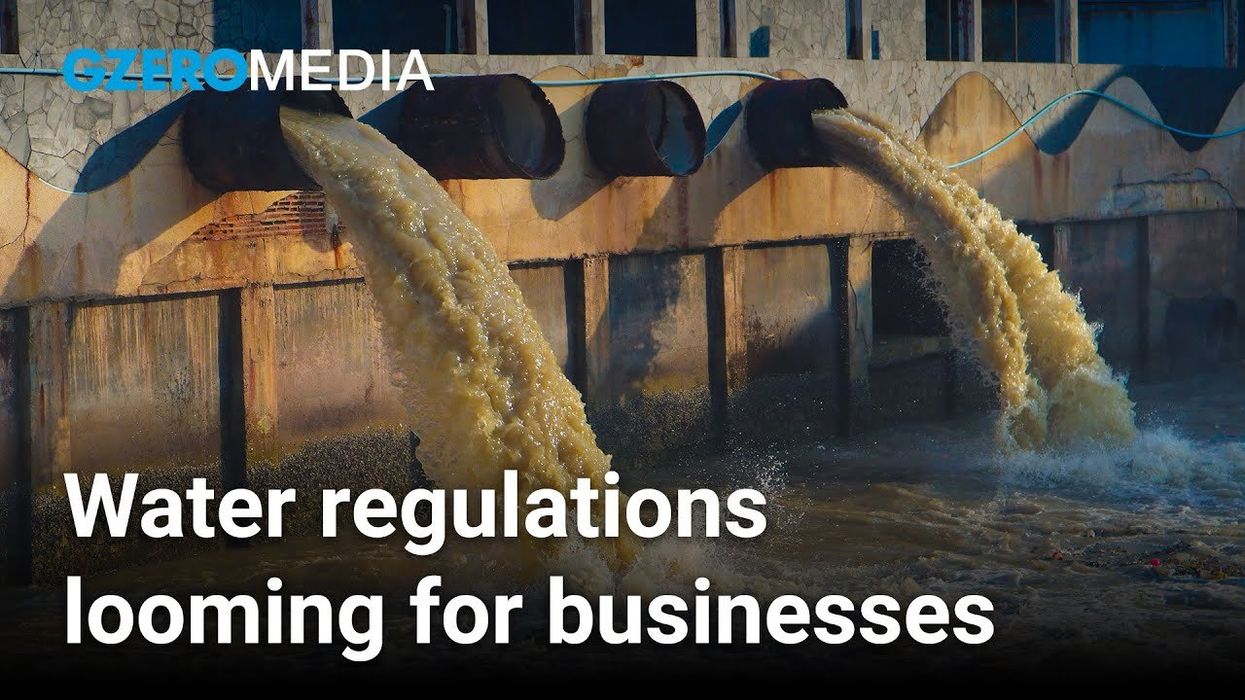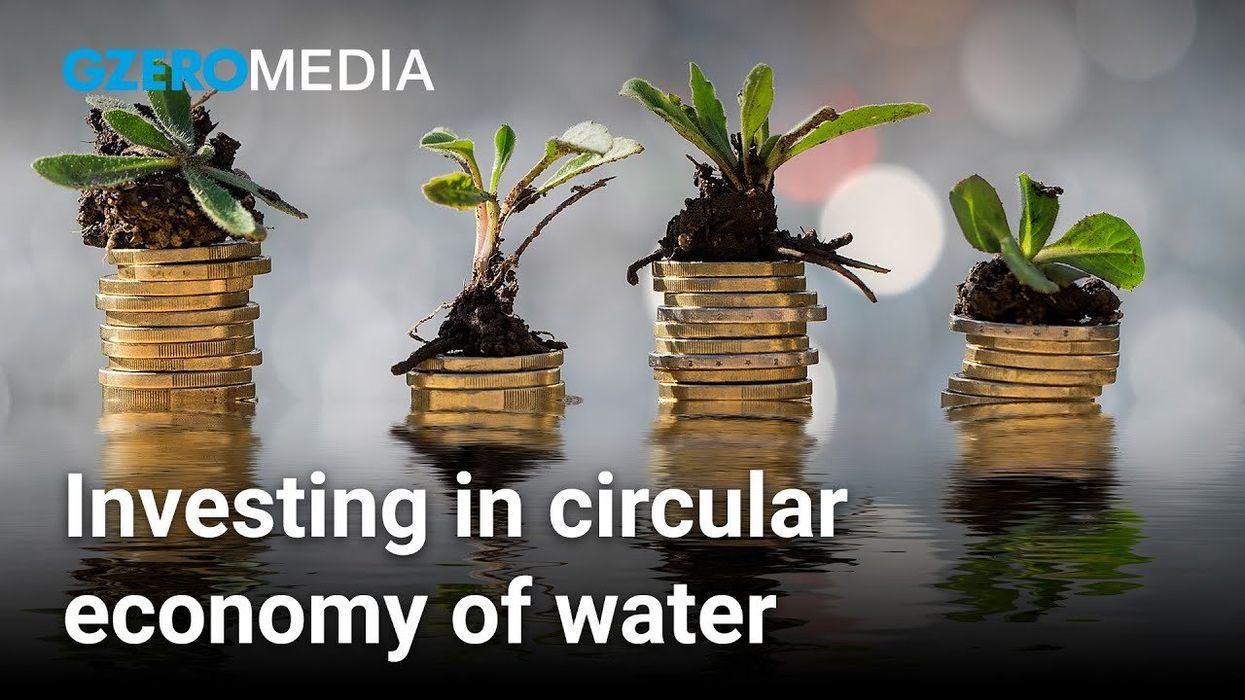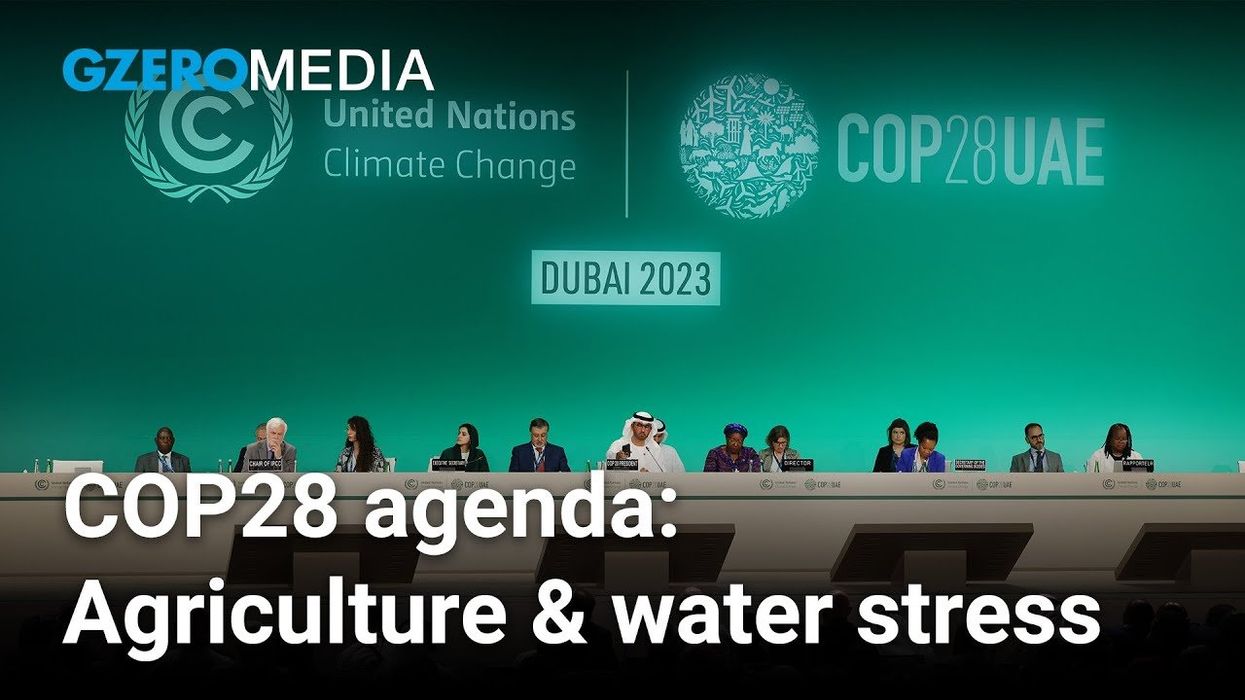Climate
What will it take for the world to get serious about water?
Why did it take over twenty years for the UN's marquee climate conference to start talking about water? This lack of attention has led humanity to "abuse the resource," overtaxing existing freshwater resources and exposing them to pollution, per expert James at a GZERO Live event organized by Sustainability Leaders Council, a partnership between Eurasia Group, GZERO Media, and Suntory.
Dec 21, 2023










